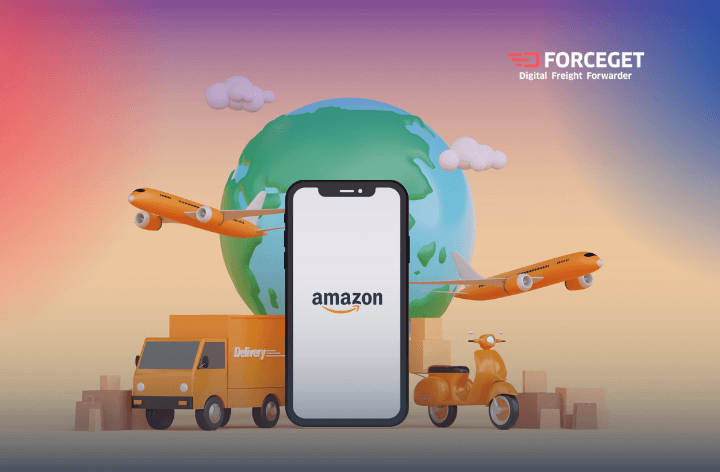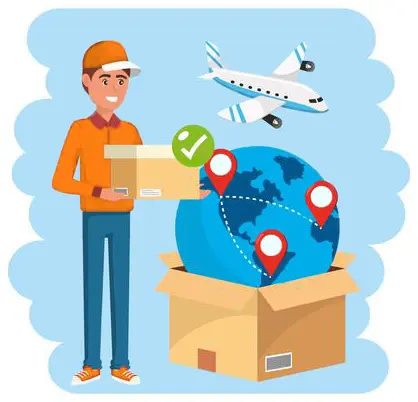When you’re selling on Amazon, perhaps the most important thing you can think of, in terms of running your business, is logistics. How will your products get to Amazon fulfilment centers or directly to customers? This could make or break your online business. The right logistics partner contributes to seamless operations, while the wrong one may create delays, damage goods, and unhappy customers.
In this article, we will examine the top logistic services available for an Amazon seller, carefully weighing the pros and cons of each option.
1. Fulfilment by Amazon (FBAA)Of all the Amazon sellers, the most popular logistic service is Fulfilment by Amazon, better known as FBA. In FBA, one sends his products to Amazon fulfillment centers, and they do the rest of the work, from storage to shipment, customer service, and return.
Headache-Free Returns and Customer Service:
Amazon handles returns and customer service on behalf of you to free you from wasting any of your valuable time with it.
Scaling: Because Amazon manages the inventory and handles the shipping and logistics, it’s a breeze to scale your business.
2. Seller-Fulfilled Prime (SFP)
SFP just means you can give the benefits of Amazon Prime shipping, but the seller is still responsible for the fulfillment. Amazon will require you to adhere to their stringent delivery standards, failing which they will revoke your SFP status.
Control Over Fulfillment:
You have full control over packaging, branding, and shipping.
Lower Costs: Your costs are likely to be lower than those of FBA, particularly if you have an efficient in-house logistics operation.
3. Third-party logistics providers (3PL)
Third-party logistics providers manage your business’s logistics operations, from warehousing and order fulfillment to shipping and returns. 3PLs are a flexible way to let the sellers get much closer to their logistics without handling everything within the company.
Focus on the core business:
Outsourcing logistics frees up more time for core business activities like marketing and product development.
Cons:
Variable Quality:
Not all 3PLs provide the same quality of service, so you must be very careful about them.
Communication:
A third-party logistics company can add layers of communication that could slow down decision-making.
Loss of control:
With increased flexibility, you do indeed lose some control over delivery timelines, packaging, and handling.
4. Direct Shipping from Suppliers
If you work with manufacturers or suppliers that are able to ship directly to Amazon’s fulfilment centers or even directly to customers, this is an efficient option, especially for international sellers. People often refer to this model as “drop shipping.”
Pros:
Cost Savings:
Save on shipping costs by having your goods shipped directly from the supplier.
Simplified Operations: You do not have to deal with any kind of middleman or extra warehousing.
Customer Service Problems: An issue with a supplier directly affects your customer satisfaction.
5. Hybrid fulfilment models
Balancing cost, control, and scalability in the right mix, a hybrid approach incorporates two or more logistics models. Depending on product types, inventory levels, and sales location, you may use FBA or a 3PL for some products and a 3PL for others.
Pros:
Flexibility: Allows you to easily adapt to market changes, fluctuations in demand, and various logistical challenges that are so common.
Advantages:
Cost Optimization:
You can take advantage of various logistics models for different products.
Improved Control:
You can retain control over certain aspects of your business while you outsource others.
Cons:
Complexity: Managing a number of logistics providers can be complicated and require more sophisticated systems.
Inconsistent Customer Experience: Different fulfillment methods may also create varying experiences among customers.
6. Amazon Global Logistics (AGL)

Amazon Global Logistics is a service that provides end-to-end logistics solutions for international sellers who want to import products directly into Amazon’s fulfillment centers. AGL handles all logistics requirements, from customs clearance to ocean freight.
Pros:
Seamless integration: directly integrated with your Amazon Seller Central account
End-to-end solution: covers every step, right from your manufacturer to Amazon’s warehouse.
Cost-Efficiency: This solution often offers competitive pricing for international logistics.
Cons:
Limited availability: n;t available in all regions.
Less Control Over Shipping Partners




